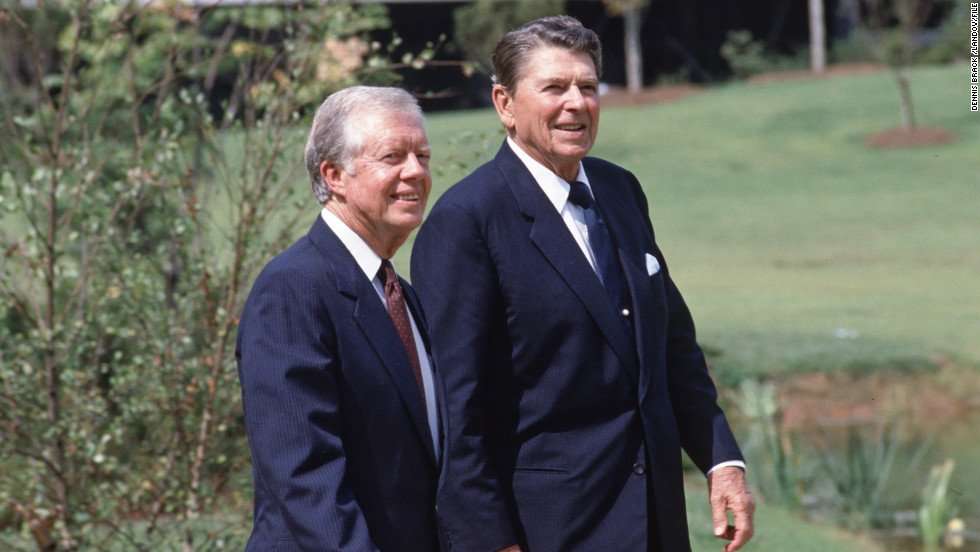In 1977, home-brewing beer over 1.0% ABV was illegal. Jimmy Carter and Alan Cranston would change that with HR 1337.
These days, walking into a bar in America or beer store, you can expect a selection of beer involving the big staples (Budweiser, Corona, etc), often accompanied by a craft selection. If you’re lucky to be in an area with a craft beer appreciation, then you might have access to local breweries producing in your area. With a large selection, the product choices are nearly endless. New flavors, recipes, and ingredients are imagined and created every day.
Today, according to the Brewers Association 2016 Craft Beer Year-Review , there are 5,005 breweries in the United States. Of these, 99% are craft breweries. However, it wasn’t always this way.
After World War II, the major beer companies in the United States began to consolidate. By the mid 1970s, there were less than 100 brewers in the United States. See the below chart for the progression of the US Brewery Count from the 1870s to the 1970s:
The reason for the downtrend in breweries from prohibition times was a result of business synergy and consolidation. Corporate breweries began to acquire other smaller breweries, effectively lowering their cost. This resulted in higher profits, and less competition. Sunshine and blue skies for the corporations, right? At the time, breweries were all competing for the same space: an extremely light, crisp flavored beer. A lack of diversification for the breweries had left consumer product choice for beer at an all time low. Consumers were limited in their product selection.
When Jimmy Carter signed the Carlson act, civilians were then allowed to brew up to 100 gallons per household. This opened up an immense opportunity to fill the market’s need for high quality, artisan products, a style that once existed in the 19th century. There were tiered tax brackets created for those who wished to sell their beer, however those who brewed for personal consumption were not taxed. These tax brackets were based solely on volume, an encouraging rule for small business owners.
And with that, a counterculture response began.
People all over American began microbrewing, creating their own flavors and tastes. As if it was under their nose the whole time, people woke up, and Americans wanted good beer. Companies like Sierra Nevada Brewing, established in 1979, owe their start to this law passed by Carter. The growth was undeniably massive, well exemplified in these graphs:
With that, a counterculture response began. People all over American began micro-brewing, creating their own flavors and tastes. As if it was under their nose the whole time, people woke up, and Americans wanted good beer. Companies like Sierra Nevada Brewing, established in 1979, owe their start to this law passed by Carter. Certain states passed legislation that improved and supported the beer industry. California in particular, was instrumental to the early foundations of craft brew. In 1983, California passed laws allowing breweries to sell beer on the premise, allowing for the creation of brewpubs.
Now, it seems we’re in the golden age of beer. Craft beer is incredibly popular among the younger generations, and as they get older, we can expect the interest for craft beer to grow.
One aspect of this industry to keep an eye on is the involvement of corporate craft breweries. As corporations are now heavily involved in craft & artisnal beer, will the local breweries continue to compete? I can totally see why people would have a hard time justifying spending $10-$15 on a single bottle of beer, when they can get a corporate-owned ‘craft’ Goose-Island IPA 6-pack for $10 (Anheuser-Busch purchased Goose Island in 2011 for 38 million dollars). The heavy handed emergence of corporate craft beer takeovers has continued since then with 10 Barrel, Blue Point Brewing Company, Ballast Point and Terrapin, all purchased outright. Lagunitas has sold a 50% stake of its brewery to beer behemoth Heineken. Brooklyn Brewery has sold 35% to Kirin.
Certainly, the influx of corporations into craft beer is less than ideal. But we have things to be thankful for; great beer produced by beer enthusiasts. The $50 billion dollar craft beer industry has produced over 400,000 jobs for hardworking beer enthusiasts. We have more styles, flavors, and product selection than ever before. A record breaking count of breweries. What’s for sure is that we would not be where we are today without the legislation passed by Carter. So next time you’re enjoying a thick stout, or a bitter IPA, think of our old pal Jimmy Carter—cause without him we might all still be drinking Bud Light.
To get involved in home-brewing, visit the American Home Brewers Association. Find a local group in your community, or through social media.
Be sure to check your local state government for applicable home-brewing laws. The NCSL has compiled a list online of state legislation for brewing laws.

xxxJakkxxx on May 5th, 2017 at 23:04 UTC »
Dude was ahead of his time and 1337 as hell.
AsthmaticMechanic on May 5th, 2017 at 23:02 UTC »
HR 1337. Sounds like he was a h4x0r. But seriously HR stands for House Resolution, as in the U.S. House of Representatives, of which the President is not a member. Presidents don't write or pass legislation. There's no evidence in the article or elsewhere that says Carter's involvement in the law went any further than signing it, which, notwithstanding the quoted portion of the article, he did in 1978. We should be celebrating Rep. Steiger, William A. [R-WI-6], who introduced the bill.
Lyralou on May 5th, 2017 at 22:10 UTC »
Thanks, Jimmy!